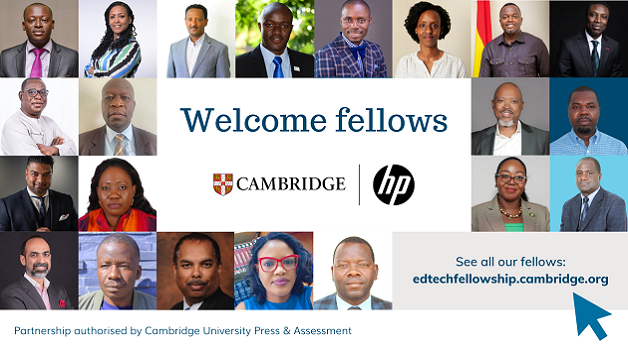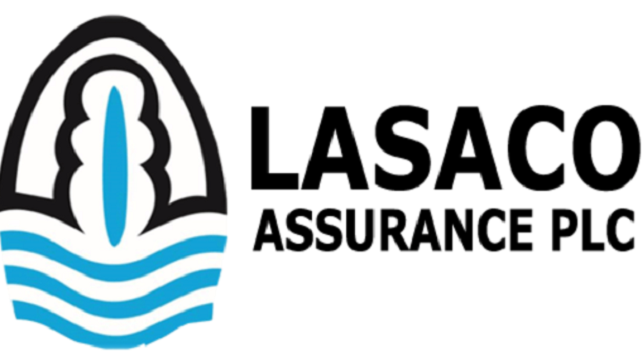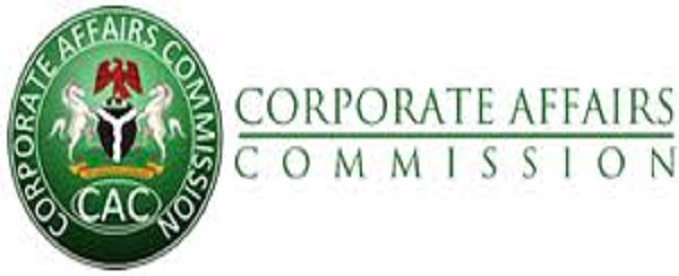News
HP, Cambridge Turn to Africa for EdTech Innovations to Transform Learning

This September, 25 of Africa’s most influential education technology (EdTech) leaders will head to Cambridge on a new fellowship programme from Cambridge Partnership for Education and HP.

The HP Cambridge Partnership for Education EdTech Fellowship is a seven-month programme that aims to grow participants’ knowledge and skills to lead impactful EdTech transformations in their education systems.
The first cohort of EdTech fellows will work to increase the quality and equity of learning through digital transformation in education systems across Sub-Saharan Africa. Learning with technology has the potential to create societies that are not only more inclusive and prosperous, but also ensure that young people are equipped with the skills they need for their careers.
Cambridge and HP selected the group from 400 applications. The first cohort of their HP Cambridge Partnership for Education EdTech Fellowship includes government officials working in education and leaders from private and not-for-profit EdTech organisations.
The Cambridge HP fellowship programme will encompass inclusive EdTech for disadvantaged groups, the role of AI, and digital strategy, policy and governance. The fellows will also develop an equitable solution to an education system challenge using user-centred design while developing their leadership skills.
With Africa experiencing rapid population growth, the first fellows’ influence on global education is set to have a significant impact.
The first fellows include senior government officials responsible for national digital education initiatives, with the goal to improve learning for more than 120 million children across Botswana, Eswatini, Ethiopia, Ghana, Kenya, Malawi, Nigeria, Rwanda, Sierra Leone, South Africa, Uganda and Zambia.
The programme, which starts with online study next week, will include a residential course in September 2023, held at Trinity Hall, University of Cambridge in the UK, as well as one-to-one coaching over the course of seven months.
Fellows joining the programme on scholarship include Dr Frances Alimigbe, Assistant Chief Education Officer at the Teachers Registration Council of Nigeria. Dr Frances works with more than two million teachers across 36 states, including on teacher selection, standards and policy.
Some of the key challenges she plans to focus on during the fellowship are infrastructure and tools and teachers’ digital skills and capacity in schools, especially in rural areas.
“The wealth of contacts and ideas that will be acquired by being a member of the fellowship will form an immense database and viable resource for us to fall back to. With the fellowship, we form a community of practice where best practices are shared across borders and generate quality research ideas for improving EdTech transformation in teaching and learning globally.” said Dr Alimigbe.
Other fellows include Mrs. Catherine Agyapomaa Appiah-Pinkrah, Director of General Administration at the Ministry of Education in Ghana.
She said: “There is the need to put in place reliable and credible fidelity of implementation strategies for quality assurance in all our programmes and policy implementation. I believe the fellowship will expose me to new ideas, exchange of ideas and experiences and best practices from other participants.”
Jane Mann, Managing Director of Cambridge Partnership for Education, said: “Our first EdTech fellows have huge remits, and huge strengths. They are responsible for turning policy into action.
Supported by one another, tutors and coaches, the fellows will build healthier EdTech ecosystems where grassroots innovations are promoted, effectively evaluated and successfully scaled to help combat learning crises today and increase education system resilience for the future.”
Mayank Dhingra, Senior Education Business Leader at HP, said: “The next breakthroughs in EdTech will come from emerging visionary leaders in unique national contexts. This programme will enable cross-border discussions and development to help overcome barriers, from infrastructure to curriculum content.”
Cambridge Partnership for Education developed the inaugural EdTech fellowship programme with HP during the AfricanBrains Summit in Lusaka, Zambia in 2022.
The programme is led by Cambridge Partnership for Education Head of Education Technology Solutions Julia Citron. It is supported by the Digital Education Futures Initiative (DEFI) at Hughes Hall at the University of Cambridge and Dr Bjoern Hassler’s team at EdTech specialist NGO, OpenDevEd.
HP Cambridge Partnership for Education EdTech fellows:
Botswana
- Nicodemus Merafhe, Chief Education Officer, Government of Botswana, Ministry of Education & Skills Development, the Department of ICT and Media Services, Botswana
Eswatini
- Martha Shongwe, Chief Inspector for Secondary Education, Ministry of Education and Training, Eswatini
Ethiopia
- Dr Zelalem Assefa Azene, Chief Executive Officer (CEO), ICT and Digital Education, Ministry of Education, Ethiopia
Ghana
- Catherine Agyapomaa Appiah-Pinkrah, Director, General Administration, Ministry of Education, Ghana
- Akwasi Addae-Boahene, Advisor to former Minister, Transforming Teaching, Education and Learning, T-Tel, Ghana
- Miracule Daniel Gavor, Executive Director of Ghana Society for Education Technology, Ghana
- Gyamfi Adwabour, Executive Director, Centre for National Distance Learning and Open Schooling, Ghana
Kenya
- John Masika, Assistant Director – TVET Digital Transformation, Technical and Vocational Education and Training Authority, Kenya
Malawi
- Dr Joshua Valeta, Director of Open, Distance and e-Learning, Ministry of Education
Nigeria
- Dr Frances Alimigbe, Assistant Chief Education Officer, Teachers Registration Council of Nigeria
- Ayodele Odeogbola, Co-Founder, Hybrid Learning Specialist, TedPrime Support Initiative, Nigeria
- Dr Adetola Salau, Political Aide to the Executive Governor of Lagos State on Education, Nigeria
- Soji Megbowon, Principal Education Officer/Lead Researcher, Lagos State Ministry of Education
Rwanda
- Bella Rwigamba, Chief Digital Officer, Ministry of Education, Rwanda
Sierra Leone
- Victor Abu Sesay, Director of Technology and Innovation, Ministry of Technical and Higher Education, Government of Sierra Leone
South Africa
- Dr Neo Mothobi, Chief Education Specialist, Ministry of Education, South Africa
- Roche Mogorosi, Chief Director – Schools Technology Support Services, Gauteng Department of Education, South Africa
- Shunmugam Padayachee, Deputy Director General: Teachers, Education Human Resource and Institutional Development, Department of Basic Education, Pretoria, Republic of South Africa
- Emmanuel Pillay, CEO, iTMaster (PTY) Ltd, South Africa
- Michael Mavimbela, Senior Education Specialist – eLearning, Mpumalanga Department of Education, South Africa
- Jana Du Plooy, CEO, Acorn Education NPC / into space NPC, South Africa
Uganda
- Kenneth Bagarukayo, Commissioner Research and Development, Ministry of Information and Communications Technology, Uganda
Zambia
- George Mutale, Assistant Director for ICT, Ministry of Education, Zambia
Zimbabwe
- Addi Mavengere, CEO, Learning Factory, Zimbabwe
Pan-Africa NGO
- Hakeem Subair, Chief Executive Officer, 1 Million Teachers:
News
Lasaco Assurance to Invest in Technologies, Systems to Deliver Value to Clients

Lasaco Assurance Plc, has said it would continue to invest in technologies and systems that delivers tangible value to clients and drive industry innovation.

Mr Abiodun Razzaq, Managing Director of Lasaco Assurance, who stated this at the 2025 customer forum organised by the company for its northern region customers in Abuja, said the forum’s interactive session offered an invaluable platform for open and constructive dialogue.
He said the forum brought together a distinguished assembly of customers, including policyholders, brokers, corporate clients, and industry partners, to engage in a robust dialogue aimed at enhancing service delivery and aligning offerings with the evolving expectations of the Northern market.
In his opening remarks, Regional Manager (Northern Region), Lasaco Assurance, Mr. Kunle Hamza underscored the company’s unwavering dedication to stakeholder engagement as a foundational pillar of its growth strategy. He emphazised that customer insights remain integral to shaping policies, refining service processes, and reinforcing the company’s brand promise.
He provided a compelling overview of Lasaco assurance’s recent performance and strategic priorities. He highlighted the company’s consistent premium income growth, bold digital transformation agenda, and ongoing operational restructuring designed to ensure responsiveness and resilience in a dynamic insurance landscape.
Addressing the customers, Mr. Adedayo Adetokun, Head of Strategy, affirmed that Lasaco assurance was actively developing multiple digital platforms to cater forvarious customer segments—part of a broader digital innovation roadmap that positions the company for future growth. He noted that human capital development was also being prioritised with targeted investments in talent acquisition and training to enhance operational capacity.
In his closing remarks, Mr. Muyiwa Anwoju, General Manager, Sales, expressed the management’s deep appreciation for the feedback received.
He assured participants that all contributions would be meticulously reviewed, categorised, and integrated into the company’s improvement plans. According to Anwoju, this forum marks the beginning of a renewed customer engagement framework, one that would be expanded across other regions in due course.
News
CAC Announces Upward Review of Service Fees

Corporate Affairs Commission (CAC) has announced an upward review of its service fees, which will take effect from August 1, 2025.

The announcement was made through the commission’s official social media page on Tuesday, June 17, 2025.
According to the CAC, the fee adjustment was necessary due to the current economic conditions, rising operational costs, and input from key stakeholders.
The statement read, “The Commission wishes to inform the General Public, Esteemed Customers, and all Stakeholders that in the continued efforts to improve its service quality and delivery, it has become necessary to review certain service fees effective the 1st day of August 2025.”
The commission explained that the fee changes are part of efforts to deliver better and more digitalised services while maintaining the integrity of Nigeria’s corporate registry.
The revised fee structure will affect services related to companies, business names, limited partnerships, and incorporated trustees.
Key fee changes announced by the Corporate Affairs Commission (CAC) include adjustments across various service categories.
For voluntary striking-off, the fee is now ₦50,000 for small companies and ₦100,000 for public companies, up from the previous ₦25,000.
Relisting a company will cost ₦50,000 for LTD/GTE and ₦100,000 for public companies.
Due diligence through self-service is set at ₦50,000. Requests for extension of time to hold an annual general meeting will now cost ₦100,000 for public companies and ₦50,000 for others.
Historical search reports will range from ₦20,000 to ₦30,000 per request. A restriction of a director’s residential address now attracts a ₦25,000 fee, while obtaining a certified true copy of documents or extracts will cost ₦5,000 per copy.
For limited partnerships, both voluntary striking-off and relisting will cost ₦25,000. A letter of good standing will be ₦10,000, registration and certified copies of documents will be ₦30,000, and a change of name will attract a ₦10,000 fee.
Regarding business names, voluntary striking-off is now ₦10,000, relisting ₦25,000, and an application for cessation ₦10,000. The certified true copy of documents will cost ₦5,000 each, and restriction of a proprietor’s address will also be ₦25,000.
Name reservations remain at ₦1,000, while reserved names with restricted words still cost ₦5,000.
The new fee structure is expected to impact business owners, lawyers, compliance officers, and others who interact with the corporate registry.
News
Global Travel Made Simple with Kaspersky eSIM Store

Kaspersky eSIM Store is a new connectivity solution for international travel. Designed to make it easier for leisure and business travellers to stay online globally, it empowers users with easy Internet access across 150+ countries and regions, with a choice of over 2,000 affordable data plans.

The production of eSIM-compatible devices has increased tenfold in the last five years according to the GSMA. By 2028, it is expected that half of all mobile connections worldwide will use eSIM technology.
This rise in popularity is driven by eSIM’s convenience and ease of use – eliminating the need for physical SIM cards and enabling a hassle-free experience wherever you go.
To meet this growing trend, Kaspersky eSIM Store provides access to eSIM plans from local telecom operators all over the world – with an easy interface and simple management.
A new way to always stay connected
Kaspersky eSIM Store lets users to enjoy affordable and easily accessible Internet connections around the globe without the hassle of physical SIM cards. Users can seamlessly access eSIM plans from local telecom providers in 150+ countries and regions worldwide, providing favourable rates and transparent conditions without any roaming fees.
While travelling, an eSIM can help users avoid high roaming costs on a primary SIM, remove the need to search for a local SIM kiosk and share personal data with them, as well as avoiding the use of unsecured public Wi-Fi networks.
Instead, eSIM ensures that leisure travellers can focus on the joyful moments of their trip and instantly share them with friends and relatives, while business travellers have continuous access to important messages, working documents and video calls.
Seamless connection in a few taps
Kaspersky eSIM Store features a user-friendly interface for plan selection, purchase, top-ups, and data usage management. Travellers can choose their preferred activation date, allowing them to set up their eSIM in advance and be connected the moment their trip begins — all in just a few taps.
To match the needs of any traveller, there are many flexible ways to choose and manage data plans.
Options are available based on destination, including plans for specific countries, global plan 122 destinations, or mini-global plans tailored to specific regions.
For trip duration, travellers can select between expiring plans valid for a fixed period or non-expiring plans that remain active until the data is fully used. This ensures convenience whether the trip is short or long.
Additionally, users have control over when their plan starts. They can either schedule activation for a specific date or begin using the data immediately, providing flexibility to align with their travel schedule.
To ensure users never run out of GB unexpectedly, Kaspersky eSIM Store provides real-time data usage monitoring and alerts when a balance is near zero. The user profile (on the webpage or in the app) allows quick top-ups and supports multiple countries on a single eSIM – install once and use for a lifetime.
Kaspersky eSIM Store is launched in partnership with award-winning provider BNESIM Limited, which has been delivering global eSIM services since 2017.
“At Kaspersky we are constantly keeping up with latest trends shaping our digital habits, and eSIM is definitely one of them. eSIM technology greatly simplifies travelling abroad, allowing people to stay connected and not worry about issues like roaming charges.
“We know from our own experience how important it is to stay in touch with your family or colleagues when you are on a trip, so we designed Kaspersky eSIM Store for all types of travellers to ensure instant access to eSIM data plans wherever they go, as well as to provide a safe and positive digital experience,” – Mikhail Gerber, Executive Vice President, Consumer Business, Kaspersky.
Kaspersky eSIM Store complements Kaspersky’s wide range of industry-recognised solutions, such as Kaspersky VPN Secure Connection and Kaspersky Premium. Together they cover all modern connectivity needs and enhance digital freedom – ensuring safe, worry-free connectivity across the world.

 Telecom2 days ago
Telecom2 days agoALTON Clarifies on Migration to End-User Billing for USSD Services

 Telecom3 days ago
Telecom3 days agoGSMA, Mobile Industry Call for Strengthened Action to Advance Child Online Protection in Africa

 News2 days ago
News2 days agoDigital Africa Global Consult, NDPC Partner on Ground-Breaking “Nigeria Data Challenge” Initiative

 General News3 days ago
General News3 days agoTD Africa, HP Strengthen Partnership to Advance Africa’s Tech Ecosystem

 E-Financial2 days ago
E-Financial2 days agoNigerian Stock Market Suffers ₦183 Billion Loss Amid Profit-Taking

 News2 days ago
News2 days agoDStv Rewards Loyal Customers with Free Package Upgrades

 Telecom2 days ago
Telecom2 days agoLagos Future Conference 2025: Stakeholders Call for Digital Responsibility and Grassroots Innovation

 General News2 days ago
General News2 days agoAfrican Parliamentarians Seek Answers from Telcos on Quality of Service


























